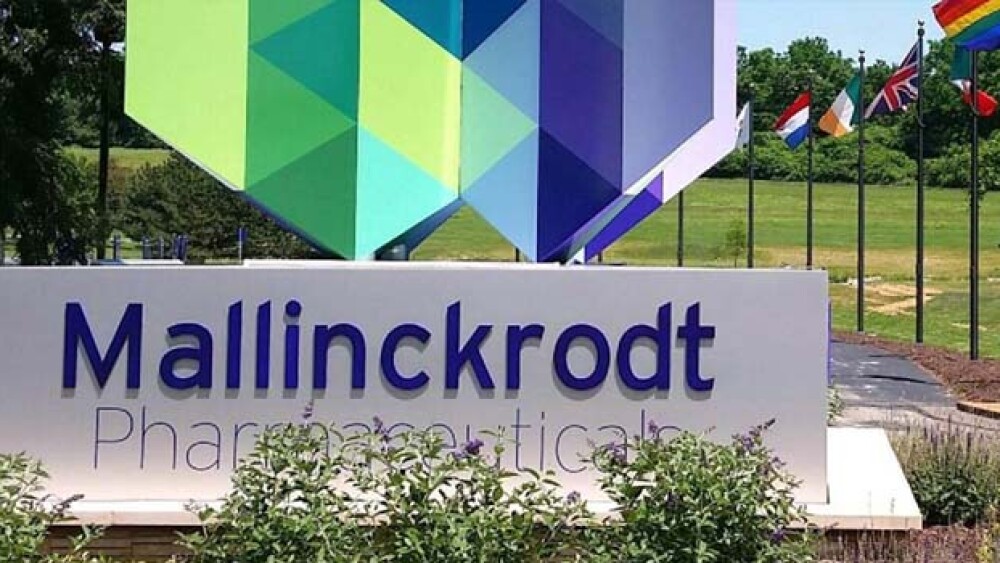Mallinckrodt’s experimental drug terlipressin hit the mark in a late-stage liver disease trial. Mallinckrodt said terlipressin met its primary endpoint in reversing three components of hepatorenal syndrome type 1.
U.K.-based Mallinckrodt’s experimental drug terlipressin hit the mark in a late-stage liver disease trial. Mallinckrodt said terlipressin met its primary endpoint in reversing three components of hepatorenal syndrome type 1 (HRS-1).
In the PHASE III CONFIRM trial, Mallinckrodt announced that terlipressin achieved verified HRS-1 reversal, which includes the components of renal function improvement, avoidance of dialysis and short-term survival. The results of the trial, which will be presented at an upcoming medical meeting, will be used as the basis for a New Drug Application with the U.S. Food and Drug Administration, the company said this morning.
HRS-1 is a rare life-threatening disease characterized by complications of liver disease that lead to kidney failure. The disease has a very poor prognosis, with a median survival time of less than two weeks and greater than 80 percent mortality within three months, Mallinckrodt said. At present, there are no approved drug therapies for HRS-1 in the U.S. or Canada. HRS-1 is estimated to affect between 30,000 and 40,000 patients in the U.S. annually.
Terlipressin is a potent, vasopressin analogue selective for V1 receptors. While not yet approved in the U.S. or Canada, terlipressin has been approved across the globe. The PHASE III trial was designed to confirm efficacy and safety of terlipressin to treat HRS-1. Patients in the trial included adults with liver cirrhosis and ascites with rapidly worsening renal function and no response to diuretics or albumin. The primary endpoint of verified HRS reversal was intended to evaluate renal function improvement, avoidance of dialysis and short-term survival, Mallinckrodt said.
Arun Sanyal, a professor of medicine, physiology and molecular pathology at Virginia Commonwealth University and an investigator in the trial, called the results encouraging as “they demonstrate terlipressin reversed the course of HRS-1 as measured by improvement in renal function, avoidance of dialysis and short-term survival.” In addition to hitting its primary endpoint, Sanyal said terlipressin also hits its pre-specified secondary endpoints.
“HRS-1 is a life-threatening disease that is extremely difficult to treat. We anticipate the complete results will continue to help inform the effectiveness and safety profile of terlipressin in this patient population with urgent unmet medical needs,” Sanyal said in a statement.
Mallinckrodt Chief Scientific Officer Steven Romano hailed the Phase III results. He said the CONFIRM trial is the largest-ever prospective trial in HRS-1. He reiterated that the trial will support regulatory submissions in the U.S. and Canada and that the company will share the full results of the trial later.
While Mallinckrodt is eying potential approval of terlipressin in the United States, the company is still grappling with litigation over its opioid medications. The lawsuits, along with uncertain market conditions, caused Mallinckrodt to suspend its plans to spin off its generics business into a standalone entity. Eight months ago, the company announced a plan to spin off the business in order to create two independent publicly traded companies. One will be focused on “innovative specialty pharmaceutical brands,” while the other company will be concentrated primarily in “niche specialty generic products and API manufacturing.”





